Resilient Business Strategies in Global Markets
Organizer:
International College Beijing, China Agricultural University
Date:
September, 20th 2025 (UTC +8)
Symposium Chair:
Personal Bio:
Dr. Chai is an Associate Professor at China Agricultural University. His research interests include environmental economics, environmental sustainability, coupled human and natural systems, etc. He has published over 30 research articles as the first/corresponding author in the high-quality SCI/SSCI journals including Nature Sustainability, World Development, Resources Conservation & Recycling, Sustainable Production and Consumption, Science of the Total Environment, etc. He serves as an expert in NGOs such as FAO of the United Nations, and in the leading enterprises, such as Alibaba, Tencent, CIECC, etc. He also serves as the Guest Editor for SCI journals including Frontiers in Sustainable Food Systems, Frontiers in Nutrition, and Sustainability.
Committee Members:
| Dr. Aoyu Hou | China Agricultural University | houaoyu@cau.edu.cn |
| Dr. Bing Liu | China Agricultural University | bingliu@cau.edu.cn |
Background:
The Resilient Business Strategies in Global Markets Symposium, hosted by China Agricultural University, provides participants with a platform to explore innovative research and practical approaches to building resilience in business strategy under global uncertainty. In an increasingly interconnected and dynamic world, businesses must operate under conditions of rapid change and emerging risks. Global economic fluctuations, technological transformation, environmental concerns, and shifting regulatory frameworks have underscored the importance of resilience as a key component of long-term competitiveness. This has spurred academic inquiry into how organizations across sectors anticipate, absorb, and adapt to disruption in global contexts. Drawing on interdisciplinary perspectives from business, economics, policy studies, and international trade, this Symposium facilitates scholarly dialogue on strategic, institutional, and policy-oriented responses to global complexity and risk.
Goal/Rationale:
The Resilient Business Strategies in Global Markets Symposium is dedicated to understanding how businesses, institutions, and policymakers can build resilience under the increasing global complexity. As firms navigate challenges such as instability, supply chain disruptions, economic uncertainty, and environmental risks, there is a growing need for strategies that go beyond short-term adaptation and contribute to long-term stability and competitiveness. This Symposium aims to foster interdisciplinary dialogue on how resilience can be embedded into business models, policy frameworks, and global trade systems. Discussions will explore strategic planning under uncertainty, institutional support mechanisms, digital transformation, and the evolving role of regulation in supporting resilient outcomes. By bringing together scholars, practitioners, and policymakers, the Symposium offers a platform for sharing emerging research, exchanging practical insights, and identifying pathways to strengthen organizational and systemic resilience. Through these discussions, it contributes to the development of business and policy solutions that are better equipped to respond to disruption and shape more robust global economic systems.
Call for Papers
Topics related to the symposium theme – “Resilient Business Strategies in Global Markets” -- are especially welcome. The symposium invites interdisciplinary contributions that examine how businesses, institutions, and policymakers develop and implement strategies to enhance resilience in an increasingly complex global environment. Areas of interest include, but are not limited to:
- Business strategy and global uncertainty
- Resilient organizational strategies
- Innovation in response to disruption
- Policy frameworks supporting business adaptability
- Global trade and supply chain dynamics
- Institutional capacity and cross-border collaboration
- Private-public sector coordination in crisis contexts
- Governance and leadership in times of disruption
Topics
The main topics of this symposium are listed below.
Business Management- Product Management
- Administrative Management
- Business Performance Management
- Corporate Finance and Governance
- Human Development
- Strategy Implementation and Control
- Technology and Innovation
- Business Intelligence
- Business Statistics
- Consumer Behavior
- Cost Management
- Decision Making
- Governance and Sustainability
- Human Resource Management
- Organizational Design, Modeling and Simulation
- Intergovernmental Relations
- Organizational Theory
- Public Budgeting
- Public Service
- Non-Governmental Organizations
- Intergovernmental Relations
- Organizational Theory
- Public Budgeting
- Public Service
- Non-Governmental Organizations
Meanwhile, submissions aligned with the overall conference theme are also welcome.
Finance and Economics- International Finance
- Labor Economics
- Market Structure and Pricing
- Public Economics
- Regulatory Economics
- Digital Financial Intermediation
- Finance & Investment
- Financial Risks and Capital Flows
- Prices, Business Fluctuations, and Cycles
- Accounting
- Financial Economics
- International Trade
- Marketing Theory and Applications
- Regional Economic Growth
- Welfare Economics
- Constitutional Economics
- Econometrics
- Financial Sustainability
- Circular Economy
- Ecology and Biodiversity Conservation
- Energy Efficiency
- Environmental Policy
- Green Manufacturing and Building
- Integrated Energy Systems
- Recycling Technology
- Sustainable Communities
- Advanced Green Energy Technologies
- Climate Change and Global Warming
- Energy Management Technology
- Environmental and Pollution Control
- Environmental-Friendly Materials
- Sustainability Engineering
- Low Carbon Economy
- Sustainable Development
Submission
Prospective authors are kindly invited to submit full papers that include title, abstract, introduction, tables, figures, conclusion and references. It is unnecessary to submit an abstract in advance. The deadline for general submission is September 13, 2025.
Each paper should be no less than 4 pages. One regular registration can cover a paper of 6 pages, and additional pages will be charged. Please format your paper well according to the conference template below before submission.
Please prepare your paper in both .doc/.docx and .pdf format and submit your full paper by email with both formats attached directly to sympo_cau@icemgd.org
Publication
Accepted papers will be published in Advances in Economics, Management and Political Sciences (AEMPS) (Print ISSN: 2754-1169) and will be submitted to Conference Proceedings Citation Index (CPCI), Crossref, CNKI, Portico, Google Scholar and other databases for indexing. The situation may be affected by factors among databases like processing time, workflow, policy, etc.
Proceeding Title: Advances in Economics Management and Political Sciences (AEMPS)
Press: EWA Publishing, United Kingdom
ISSN: 2754-1169/2754-1177 (electronic)
Accepted manuscripts will be submitted to the publisher on a rolling basis. Early-registered papers are expected to be published and printed earlier.
This symposium is organized by ICEMGD 2025 and it will independently proceed the submission and publication process.
Highlights
The symposium Resilient Business Strategies in Global Markets , held on September 20, 2025, at China Agricultural University, Beijing, convened scholars and policymakers to address the pressing need for resilience in business strategy under global uncertainty. Organized by International College Beijing as part of the 9th International Conference on Economic Management and Green Development (ICEMGD 2025), the symposium was chaired by Dr. Li Chai, Associate Professor at China Agricultural University. The symposium brought together distinguished scholars from Peking University, China Agricultural University, Fudan University, and other leading institutions, alongside practitioners and policymakers. Together, they explored how businesses, institutions, and governments can anticipate, absorb, and adapt to disruptions in a rapidly evolving global landscape. Key themes included resilient organizational strategies, innovation in response to disruption, global trade and supply chain dynamics, institutional capacity building, and governance under uncertainty. Case studies and interdisciplinary discussions highlighted how digital transformation, supportive policy frameworks, and cross-border collaboration can strengthen resilience and long-term competitiveness. Interactive exchanges fostered collaboration between academia and practice, with participants sharing insights about embedding resilience into business models and policy frameworks. Presenters emphasized that resilience is not just a short-term adaptive tool but a strategic imperative for ensuring stability, sustainability, and growth in the face of economic, environmental, and technological challenges.
Key takeaways included insights into adaptive encoding strategies, where the system dynamically adjusts qubit sizes based on real-time channel conditions, and performance metrics showing significant gains in PSNR and SSIM for formats like JPEG and HEIF. The symposium also covered practical decoding techniques using Hadamard gates and error mitigation in the presence of quantum noise.
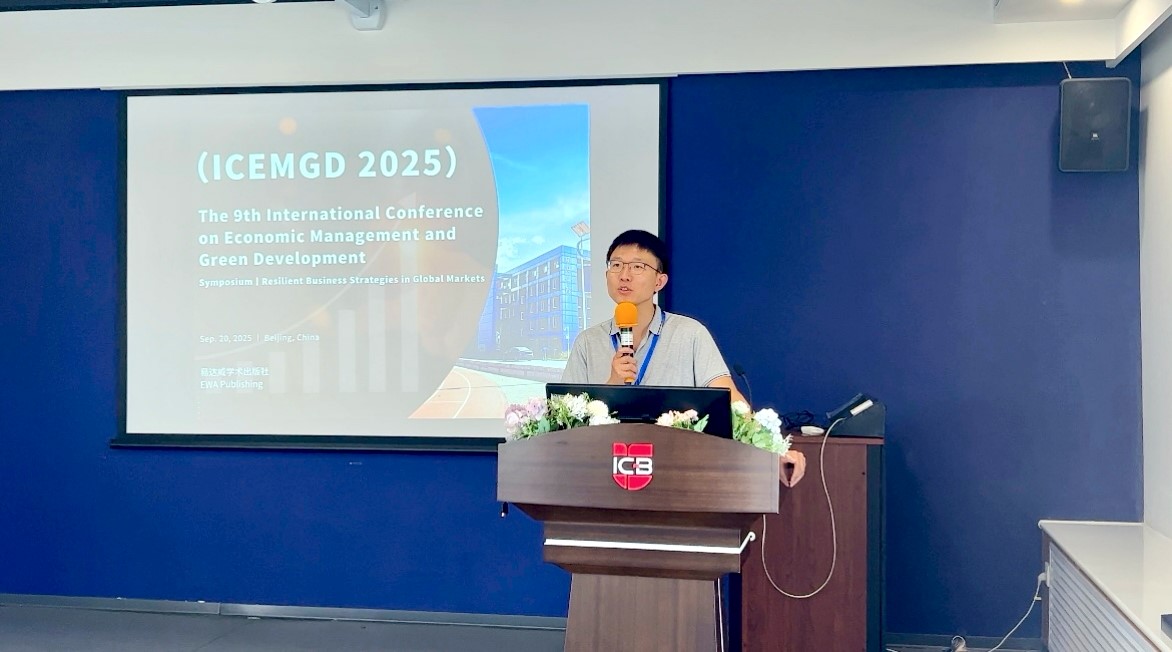
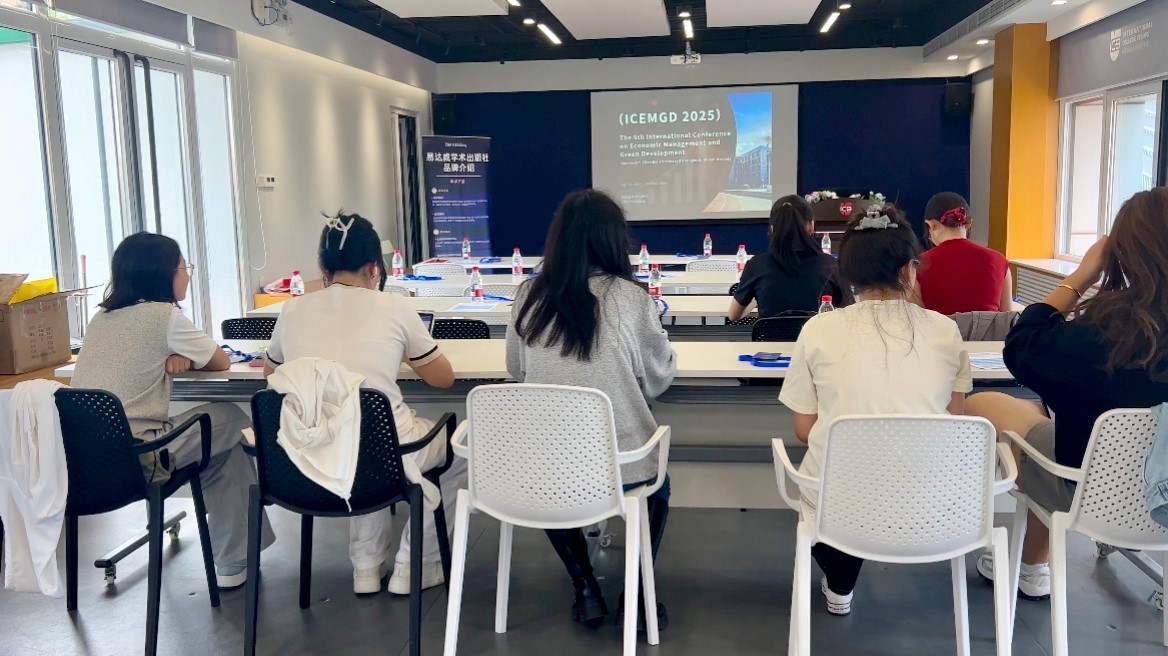
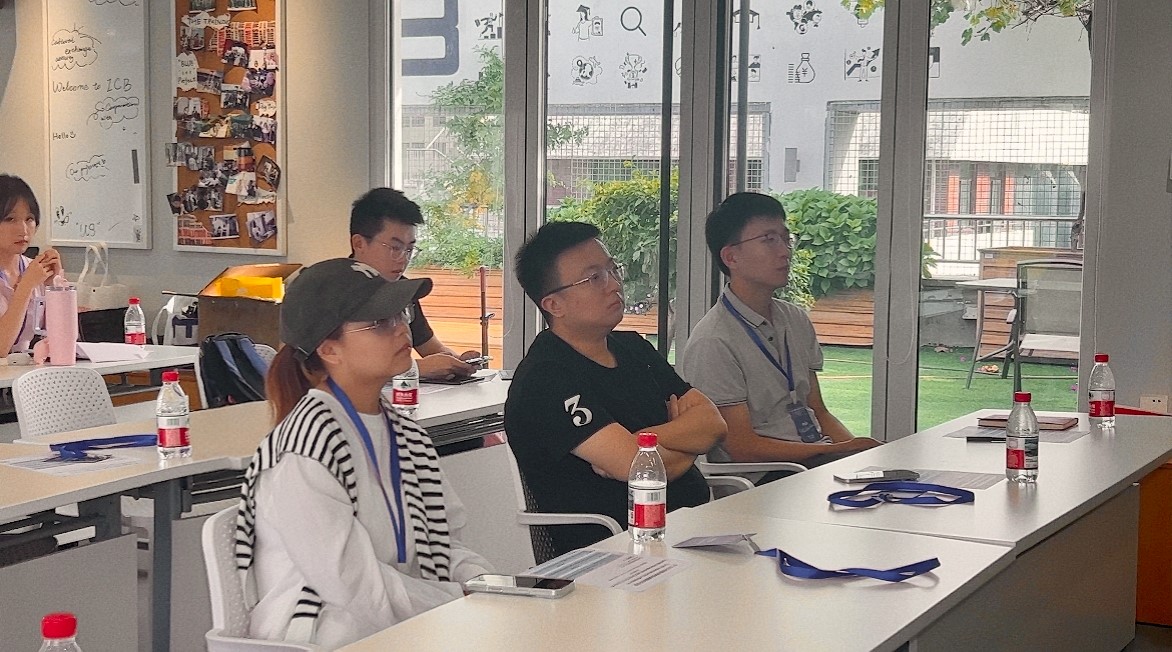
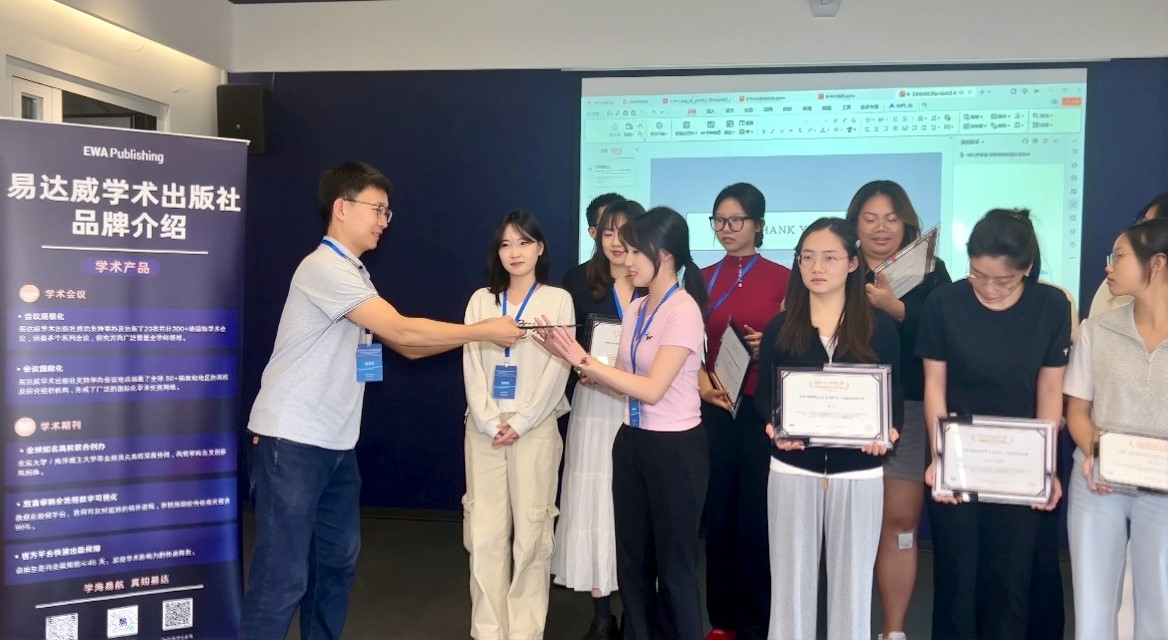
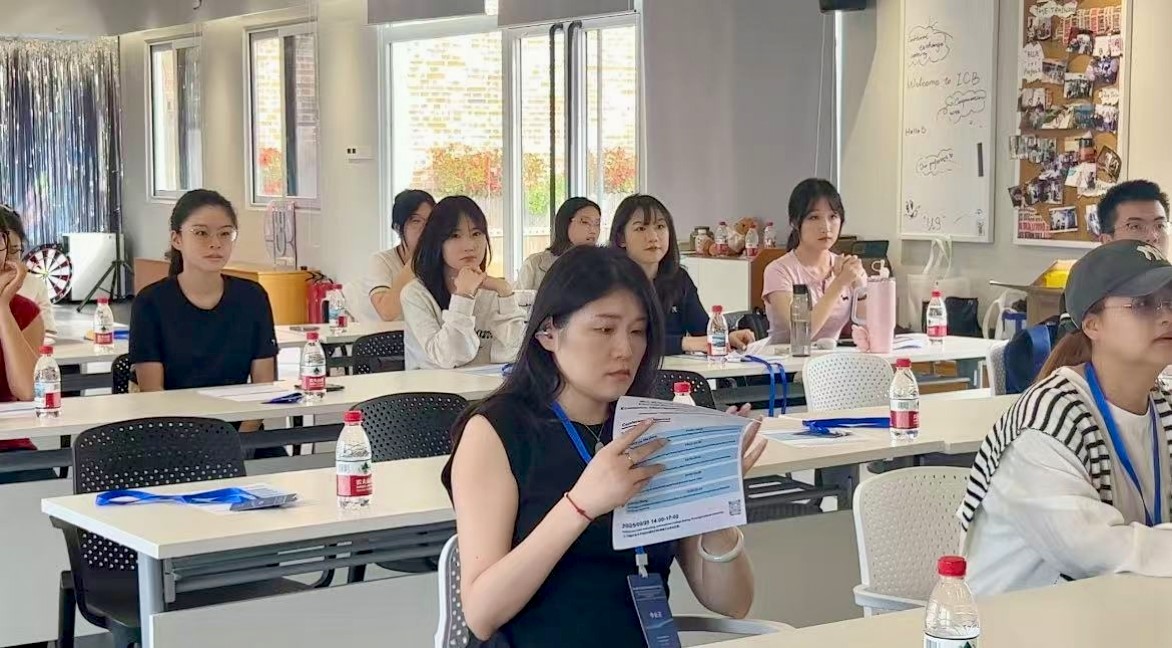
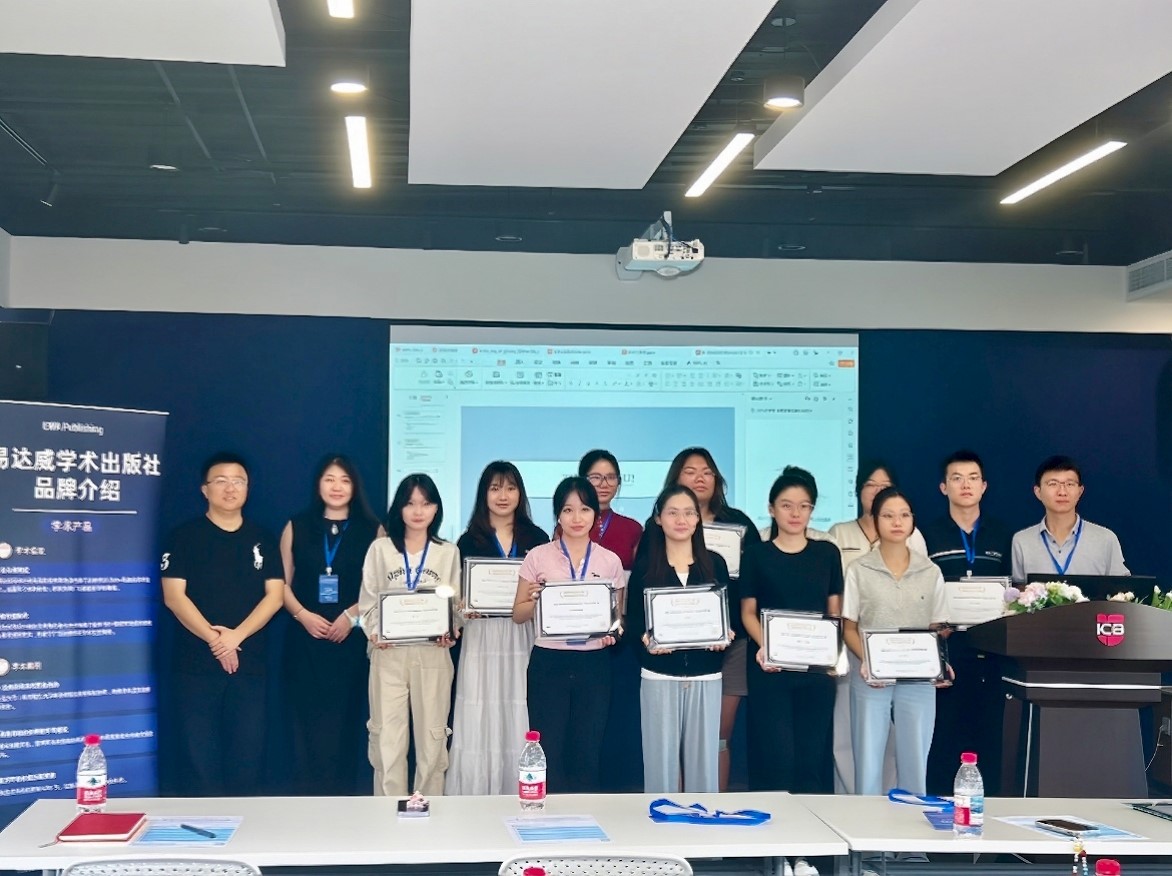
Ways to Participate
Attendance Onsite
The symposium welcomes participants to attend on-site and share the innovative experiences and researches with the group. Therefore, we provide some general information about the visa application. If you want to attend the symposium on-site, please email the symposium committee: sympo_cau@icemgd.org
VISA:
Visa for ChinaIn order to ensure the information is correct and up to date, there may be changes which we are not aware of. And different countries have different rules for the visa application. It is always a good idea to check the latest regulations in your country. You should confirm details with your local Consular Office. This page just gives some general information of the visa application.
China Visa Information
-
Check which visa you need to get
The majority of foreign citizens are required to obtain one of the China visas in order to visit the country, as there are only a few nationalities who are granted visa free entry for China for short stays. At the moment, travelers from countries who are not visa-exempt for China are obliged to apply for a visa in person from a Chinese embassy or consulate, with only a few exceptions, including for tour groups and airline crew from a few select countries. This is expected to change in the near future for select eligible nationalities when China introduces an electronic application form for visas. This will make it possible to apply for certain visa types for China exclusively online, eliminating the need to travel to an embassy or consulate in person.As the launch date for the Chinese electronic is yet to be finalized, however, non visa-exempt citizens are still currently required to apply for one of the following visa types for China from an embassy or consulate.
-
China Visa Registration Process
Foreign nationals who wish to travel to China will need to follow a registration process to obtain their visa. The China Visa application form should be signed and every question must be answered. Applicants may select "none" if the question does not apply to their individual circumstances. Applications for the Chinese visa must be completed in block capital letters and handwritten changes will not be accepted. The signature on the China visa application must match the signature on the applicant's passport. People's Republic of China diplomatic missions require that each visa application is completed following strict guidelines. Supporting documents must be accurately and carefully prepared. -
How Long Does It Take to Get a Visa to China
Generally speaking, if the applicant meets all the requirements, has all the necessary documents and holds a passport with at least six months validity and two blank pages it should take about four working days to get a Chinese visa. Some People's Republic of China Diplomatic Missions offer rush service, which speed up the processing time of a visa for China. Nonetheless, it is only available for cases of extreme urgency and depend on the approval of the Chinese Consular Office. Foreign nationals who wish to travel to Mainland China, whether it is for tourism, business, transit or other, are recommended to apply between two months to fifteen days before their departure. If the traveler applies with too much time in advance, they visa might expire before they can use it. When a visa for China is granted, the validity period of such visa begins from the moment it was approved. -
How Do You Get a Visa for China?
The People's Republic of China has several types of visas in place. The visa a traveler needs depends on their citizenship, purpose of trip and the length of their stay. Currently, there are only some countries that are exempt from applying for a China visa to travel to Mainland China. However, the country does waive visas if the traveler meets specific requirements and is traveling to certain regions.
To apply for a Chinese visa, the traveler will need to complete an application form, attach a recently-taken color photo, submit the application and pay the respective fee. Tourist that are from non-visa exempt countries should apply for the Tourist (L) visa, issued to aliens who are traveling to Mainland China for tourism purposes only. Those who wish to carry out business in China will need to obtain the Business (M) China visa.
To successfully apply for a visa to China, the applicant will need to provide supporting documents and a valid passport. If applying for a Tourist (L) visa to China, the supporting documents refer to round-trip tickets, accommodation bookings, or an invitation letter from a travel agency in China. It is important to note that the China visa application requirements will vary depending on the type of visa the traveler is applying for.













